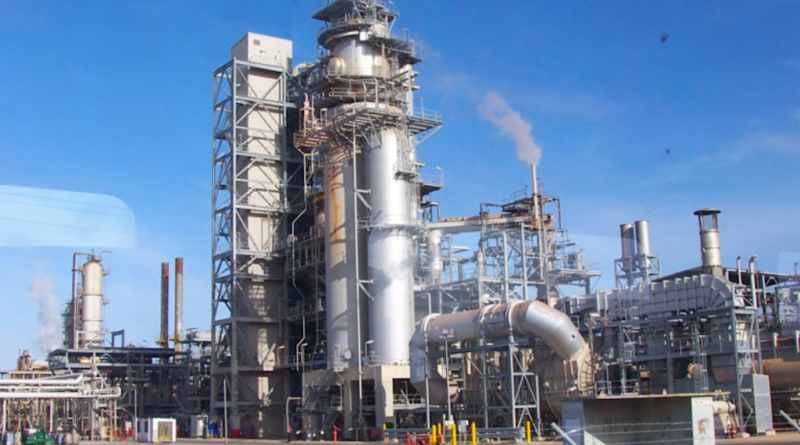Winners, losers in Dangote Petroleum’s free logistics distribution announcement
On 15 June, Dangote Petroleum Refinery announced a nationwide fuel distribution initiative scheduled to commence on 15 August. This programme aims to distribute Premium Motor Spirit (PMS, or petrol) and diesel directly to marketers, petrol dealers, manufacturers, telecommunications firms, aviation companies, and other significant fuel consumers, coupled with complimentary logistics support.
The initiative will utilise 4,000 new Compressed Natural Gas (CNG)-powered tankers and other logistics vehicles to create distribution hubs and “daughter booster stations” for efficient delivery, particularly to rural and underserved regions. Furthermore, Dangote will provide a credit facility for purchasers of at least 500,000 litres, allowing them to obtain an additional 500,000 litres on credit for two weeks, contingent upon a bank guarantee. Registration for this programme will be open from 16 June to 15 August, with a requirement for Know Your Customer (KYC) verification.
Impact on Pricing
The free logistics initiative is strategically designed to lower fuel distribution expenses, representing 10-30 per cent of fuel prices in Nigeria, especially in rural areas. Dangote aims to decrease pump prices and foster price uniformity nationwide by absorbing transportation costs. Analysts have predicted the following potential price impacts:
– Petrol (PMS): With Dangote’s ex-depot price estimated at approximately ₦835-₦850 per litre and free delivery services, retail prices at partner outlets and stations sourcing directly from Dangote are expected to stabilise between ₦870-₦920 per litre nationwide. This marks a substantial reduction from previous highs of ₦1,030 per litre in certain areas.
– Diesel: Dangote has lowered its ex-depot diesel price to as low as ₦940 per litre for bulk purchases, which may lead to retail prices stabilising between ₦980 – ₦1,050 per litre. This pricing structure is particularly advantageous for the manufacturing and transportation sectors, which are major consumers of diesel.
Moreover, reduced fuel prices could translate into lowered production costs for various industries, alleviating transportation expenses and potentially mitigating inflation, a critical issue facing Nigeria. The initiative aligns with the Nigerian government’s “Naira-for-Crude” scheme, aimed at stabilising fuel supply amid global oil price fluctuations. However, stability in pricing will depend on various factors, including the stability of the naira and global crude oil prices.
Nevertheless, there are inherent risks to consider:
If Dangote were to transition to dollar-based sales due to potential crude supply issues—as in March when naira-based sales were suspended—pump prices could increase, leading to heightened transport and production costs and further inflationary pressures.
ALSO RAED: Dangote Refinery reduces petrol price
The Petroleum Products Retail Outlets Owners Association of Nigeria (PETROAN) has raised concerns that Dangote’s market dominance could result in a pricing strategy that initially lowers prices to gain market share but may subsequently lead to increased prices, potentially disadvantaging consumers in the long term.
Impact on Competition
Dangote’s direct distribution model is poised to disrupt Nigeria’s downstream petroleum sector by circumventing traditional intermediaries, such as depot owners and import-dependent marketers. The competitive landscape will experience notable shifts, which can be summarised as follows:
WINNERS
● Independent Marketers and Retail Outlets: Direct access to Dangote’s products eliminates intermediaries, reducing costs and enhancing supply reliability, particularly for rural filling stations. The credit facility also improves affordability for smaller players.
● Consumers: Increased competition alongside reduced logistics expenses may result in more stable and potentially lower fuel prices, benefiting both households and businesses.
● Dangote Refinery: By maintaining control over distribution, Dangote solidifies its market position, likely capturing a significant share of the downstream sector. Additionally, implementing CNG-powered tankers reinforces Dangote’s commitment to sustainable logistics.
LOSERS
● Depot Owners: Traditional depots, reliant on storage and throughput fees, may become less viable as Dangote supplies directly to retailers. Many may encounter challenges in sustaining operations without robust logistics support.
● Import-Dependent Marketers: Dangote’s locally refined fuels and competitive pricing strategies may pose challenges for importers, especially amid foreign exchange volatility and increased costs. The refinery’s drive to halt gasoline imports further threatens their business models.
● Independent Truck Drivers and Owners: The introduction of 4,000 CNG-powered tankers may adversely affect traditional petroleum truck drivers, as Dangote’s fleet diminishes reliance on current logistics providers. PETROAN estimates significant job losses within this sector.
● Potential Monopoly Concerns: PETROAN and other stakeholders caution that Dangote’s expansive scale and direct distribution capability could lead to monopolistic behaviour, stifling competition. The refinery’s ability to unilaterally set prices or utilise penetration pricing strategies to eliminate competitors raises concerns, particularly if it consolidates control over production and distribution.
Market Dynamics: The conclusion of the Nigerian National Petroleum Company Limited’s (NNPC) exclusive purchasing agreement with Dangote in October 2024 allowed other marketers to source products directly, fostering a more competitive environment in the sector.
Paul Alaje, Ph.D
Chief Economist,
SPM Professionals
+2347064486618
Support PREMIUM TIMES’ journalism of integrity and credibility
At Premium Times, we firmly believe in the importance of high-quality journalism. Recognizing that not everyone can afford costly news subscriptions, we are dedicated to delivering meticulously researched, fact-checked news that remains freely accessible to all.
Whether you turn to Premium Times for daily updates, in-depth investigations into pressing national issues, or entertaining trending stories, we value your readership.
It’s essential to acknowledge that news production incurs expenses, and we take pride in never placing our stories behind a prohibitive paywall.
Would you consider supporting us with a modest contribution on a monthly basis to help maintain our commitment to free, accessible news?
Make Contribution
TEXT AD: Call Willie – +2348098788999







